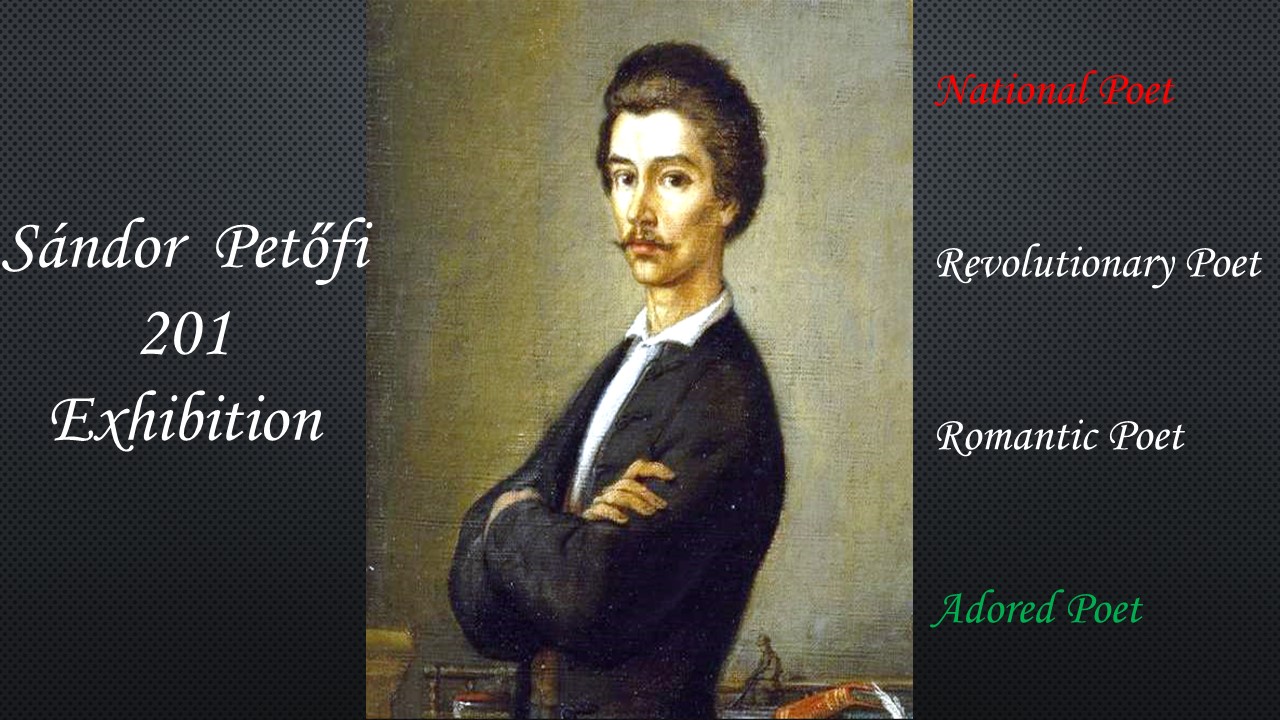Sándor Petőfi 201 Exhibition
Date/Time
Sunday, March 17, 2024 / 12:00 - 14:00
Add to iCal calendar / Add to Google calendar
At the time of Petőfi´s birth, the Kingdom of Hungary was part of the Austrian Empire, and its national independence was severely weekend. In the first half of the 19th century, continuing the ideas of Enlightenment and the French Revolution, a new spirit developed throughout Europe. Economic and social reforms began, the beginning of bourgeois and national awakening, the aspirations of which where summed up by contemporaries with the motto of country, freedom and progress.
It was in this environment that a young rebellious poet appeared in Hungary, who with his direct voice, new themes and mood creating power was the disrupter of conventions, mediocrity and salon poetry. In just 26 years of his life he wrote nearly 1000 poems. As a Hungarian-language poet he had an unprecedented impact on world literature to this day: he was actively translated into the small and large languages of Europe; his translators often learned Hungarian because of him. His poetry contributed to the self-awareness of the smaller European nations fighting for their freedom. Victor Hugo referred to it, and later Nietzsche set several of his poems to music. He played a major role in creating the image of Hungarians abroad that is still alive today. He became a central figure in the events of the European revolutionary wave in Hungary. He served his country as a poet in the revolution of 1848, which raised the slogan of civil liberties and national self-determination, and in the freedom struggle to preserve the achievements of the revolution as an army officer. Revolutionary, national hero, myth: with his poetry, dynamic being and heroic death, Sándor Petőfi is the true embodiment of romanticism.

